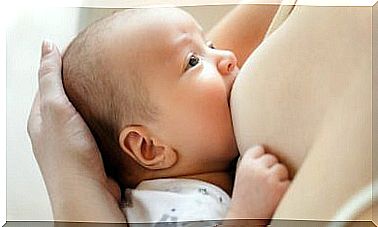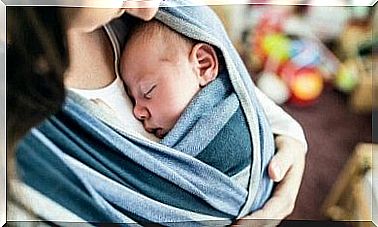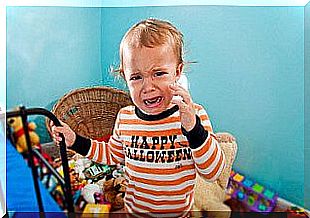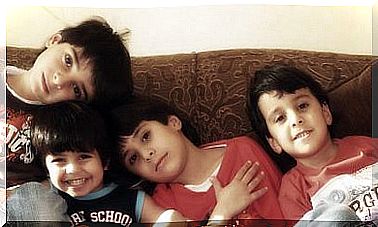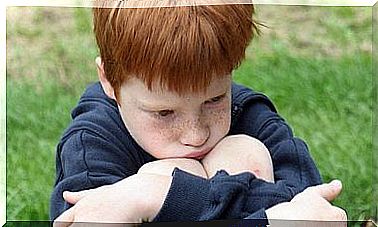Itching In Pregnancy: 5 Tricks To Alleviate It

The life of a pregnant woman changes completely: her hormones, her body and even her mind are completely different. It begins to undergo important changes that occur mainly on the skin: one of these is represented by itching in pregnancy.
In general, mothers-to-be search for information that will allow them to react as these changes occur. The latter can be, in some cases, superficial. Others, on the other hand, can leave important traces if the necessary countermeasures are not taken to deal with them.
This is the case with itching in pregnancy. A circumstance, often uncomfortable, that we do not know how to treat and that in some cases is destined to leave marks on our body. Enduring it without suffering major trauma is a characteristic present during almost the entire process of gestation.
The scientific name is “intrahepatic cholestasis of pregnancy” (CIG), also known as “cholestasis of pregnancy” or “obstetric cholestasis”.
Itching in pregnancy
When we are pregnant, the whole body may itch, but regions such as the breasts, abdomen and hips are particularly affected. This phenomenon occurs when our abdomen extends to make room for the baby, who is in a phase of full growth.
When does this common nuisance arise?
This is a very common symptom, affecting about 40% of pregnant women. Generally, it occurs during the second or third trimester, when the skin reaches a noticeable extension. It is a nuisance that occurs quite commonly in the course of this wonderful process of carrying a small and fragile creature within your belly.
What causes itching in pregnancy?
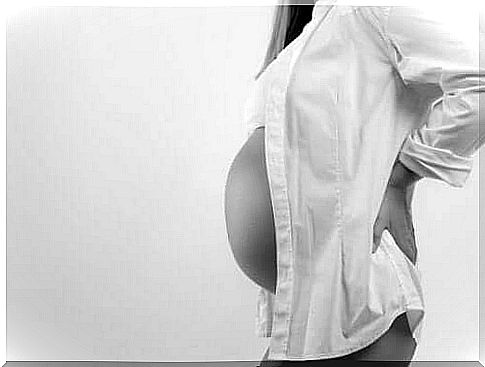
It should be borne in mind that the immunological, endocrine and metabolic changes that arise during pregnancy are of some importance. Therefore, the texture and external appearance of the skin do not escape these alterations. All this contributes to the appearance of itching, which involves the presence on our epidermis of dryness, burning and scales.
Another symptom you may suffer from is that your palms or feet turn red and itchy. This is due to the increase in the hormone estrogen. Almost always, this itch is destined to disappear at the time of delivery.
There are also other types of rash that appear. An example is some sort of eczema or spots on the abdomen that are much larger than a normal skin rash. They are so large and showy that they can appear to be manifestations of hives. They are called papules, itchy plaques, or urticariforms of pregnancy.
Tricks to avoid itching
Once we have clearly identified the basic characteristics that indicate the type of itch, we can apply the following 5 tricks that can alleviate this discomfort.
- Take cold showers, using mild, hypoallergenic or soaps that contain glycerin, almonds, oats or aloe vera.
- Use moisturizers, preferably made from natural ingredients, or create your own creams with honey or chamomile or, finally, apply natural oils, such as coconut, almond or lavender (the latter is known for its remarkable ability to make the epidermis more beautiful).
- Drink plenty of water and, if you do light exercises like walking, do it during the cooler hours: this way your circulation will work better and reduce itching. Do not forget to always apply sunscreen: you will prevent spots from appearing on your body due to skin rashes and contact with sunlight.
- Use loose-fitting clothing made of natural fibers, such as cotton, and in light colors.
- Take baths by soaking yourself in oat water or baking soda, which has anti-itch properties.
Other suggestions

The following are some tips that you can follow to improve the effectiveness of the tricks that have been suggested to you in the previous lines.
- Try to avoid hot showers or baths – they dry out the skin and aggravate itching.
- Use detergents and cleaning products that are natural.
- Rinse well with fresh water and use soft towels.
- Try not to go out during the hottest hours, as this could make itching worse.
- If you think you are suffering from cholestasis, call your doctor immediately, as it could be a very serious problem for your baby.
- As much as possible, frequent cool, shady places and avoid contact with old objects, dust and mites.
The recommendations we have reported to you will help you manage this malaise and allow you to be calmer as you prepare for this very special day: the arrival of a new member in the family.
All the suggestions we propose must be accompanied by the indications and advice of your doctor. In this way we try to accompany you in complete safety in what is the most beautiful phase of your life: the one that will lead you to become a mother.


